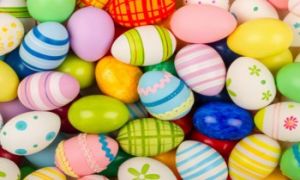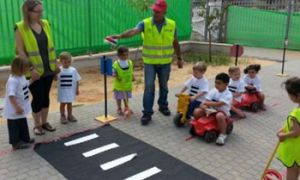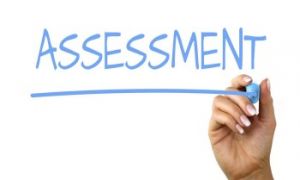

Men's Costumes Around The World Posters show the clothing of men from 27 different countries. These are great for children to see how men dress in different parts of the world. This is a great way to start open conversations on diversity. These are also great to use as part of a room display.
Women's Costumes Around The World Posters show the clothing of women from 27 different countries. These are great for children to see how women dress in different parts of the world. This is a great way to start open conversations on diversity. These are also great to use as part of a room display.
Costumes Around The World Posters show the costumes of 27 different countries. These are great for children to see how people dress in different parts of the world. Using this as a discussion point, you can talk about the similarities and differences of clothes from around the world and how it compares to how the children would normally dress. This is a great way to start open conversations on diversity. These are also great to use as part of a room display.
Learning about similarities and differences in people can be thought of as two sides of the same coin – that of appreciating what makes people different while respecting their fundamental humanity. The following article provides strategies on how to teach children about similarities and differences in people.
Anti-bias education in early childhood is about creating an inclusive environment where all children feel respected, valued, and empowered. The following article provides information on, Helping Children Through Bias, How Anti-Bias Education Can Be Implemented, Anti-bias Framework, How To Create An Inclusive Environment, Using Language That Avoids Stereotypes and more.
As an early childhood educator, you are entrusted with shaping children for the future. Creating a multicultural environment in the learning space is one of the most effective ways of helping children prepare for this world as they learn inclusive ways of thinking, working and being. The following article provides ideas and strategies for creating a multicultural environment in an early childhood setting.
The Common Words in Different Languages Posters list common words in the multicultural languages spoken throughout Australia. These are very helpful for Educators communicating with children where English isn't their first language and to also teach children common words in different languages.
The Children Of The World Matching Cards enable children to match the child card to their matching one. These cards represent children from around the world. This is a great visual awareness activity children can do. This will also show children the similarities and differences between others.
The Preschool Multicultural Support Program is designed to assist the inclusion of children from CALD and refugee backgrounds in quality preschool education and to build the cultural competency of early childhood educators. Eligible community and mobile preschool services can access 20 hours of FREE face-to-face multicultural support for any children who require assistance.
Respect for Diversity is one of the main principles that underpin the Belonging, Becoming and Being: Early Years Learning Framework for Australia. Thus it is mandatory for services and educators to use practice that incorporates diverse cultures, especially in monocultural classrooms where opportunities for practice diversity can appear limited. Here are some examples of ways diverse cultures can be embedded in everyday practice.
 Open ended questions cannot be responded to with one word answers such as yes or no. These types of questions enables a child to provide… Read More
Open ended questions cannot be responded to with one word answers such as yes or no. These types of questions enables a child to provide… Read More
 During your child’s preschool years, an important milestone begins to emerge. This is the development of pre-writing skills. Pre-writing skills are used to encourage, develop… Read More
During your child’s preschool years, an important milestone begins to emerge. This is the development of pre-writing skills. Pre-writing skills are used to encourage, develop… Read More
 Open ended materials enables children to play freely. They are objects that have no rules to follow, use or function. Raw materials that can be… Read More
Open ended materials enables children to play freely. They are objects that have no rules to follow, use or function. Raw materials that can be… Read More
 An Acknowledgment of the Country is a way of showing respect for the Traditional Owners and can be given by both non-Indigenous people and Aboriginal… Read More
An Acknowledgment of the Country is a way of showing respect for the Traditional Owners and can be given by both non-Indigenous people and Aboriginal… Read More
 Language plays an important role in a child’s development. It enables a child to communicate effectively with their family, learn at school, socialize with friends,… Read More
Language plays an important role in a child’s development. It enables a child to communicate effectively with their family, learn at school, socialize with friends,… Read More
 Like adults, children have to deal with their own stress in life. Moving house, starting a new school, preparing for a new sibling - these are… Read More
Like adults, children have to deal with their own stress in life. Moving house, starting a new school, preparing for a new sibling - these are… Read More
 Playdough is such a versatile material. It provides numerous benefits to children as they manipulate it, it is safe and soothing and provides children with… Read More
Playdough is such a versatile material. It provides numerous benefits to children as they manipulate it, it is safe and soothing and provides children with… Read More
 Teaching children about sustainability enables them to appreciate and respect the natural environment. Early childhood services can provide meaningful hand on learning experiences in order… Read More
Teaching children about sustainability enables them to appreciate and respect the natural environment. Early childhood services can provide meaningful hand on learning experiences in order… Read More
 Recycling is an important concept that teaches children to care for the environment. It encourages children to be responsible and show a growing appreciating for… Read More
Recycling is an important concept that teaches children to care for the environment. It encourages children to be responsible and show a growing appreciating for… Read More
 When children apply paint to paper, glue things together, or pound a lump of clay, they experiment with colour, shape design and texture.
Read More
When children apply paint to paper, glue things together, or pound a lump of clay, they experiment with colour, shape design and texture.
Read More

Easter is coming closer to us. So, to continue the tradition of dyeing Easter eggs...
See more...
One of the most important concepts we can introduce to children is road safety. Road...
See more...
In the early education context, assessment for learning is best practised as a “process of...
See more...© 2009-2025 Aussie Childcare Network Pty Ltd. All Rights Reserved.

